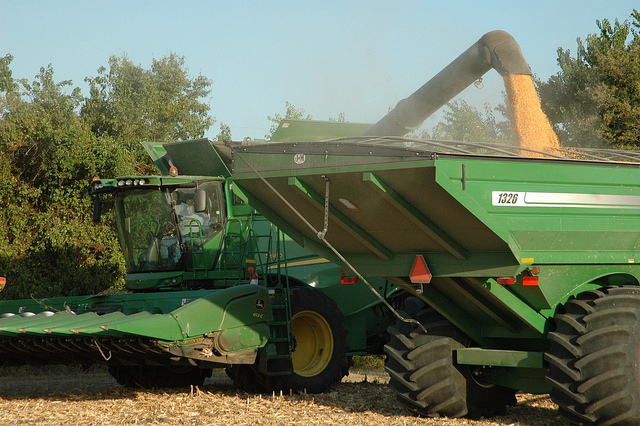A recent decision by the Iowa Court of Appeals offers some important lessons when thinking about farm estate planning and farm leases. The court’s opinion in Hope K. Farms, LLC v. Gumm, No. 14-1371 (Iowa Ct. App. June 29, 2016), may be found here.
Background
This case involves Iowa farmland that was owned by Mr. Gumm’s mother. During her life, Mr. Gumm had a lease agreement with her that allowed him to farm the land. Upon her death, ownership of the land passed to the Gumm Family Trust. The trust was governed by three trustees, one of which was Mr. Gumm.
The trustees were unable to work together and had numerous disagreements, which led them to court. During litigation, the court ruled that under the terms of the trust, two trustees could sell the farmland by majority action, but that Mr. Gumm would have the right to continue farming the land under his current lease agreement even if it was sold.
In 2012, the farmland was sold to the Schillings, subject to Mr. Gumm’s lease that was to terminate in 2015. The lease agreement included several important clauses, including:
(1) The Schillings were to direct what crops should be planted.
(2) Mr. Gumm would plant the directed crops in a timely fashion.
(3) The Schillings and Mr. Gumm would share in costs and profits 50/50.
(4) Mr. Gumm was not to incur any expenses without first obtaining the Schillings written authorization to do so.
(5) The Schillings had the right to enter the land at any reasonable time for any reasonable purpose.
Court Actions
In May 2013, the Schillings filed legal action against Mr. Gumm for breach of the lease agreement. Specifically, they argued that he breached the lease by failing to prep the land for planting, failing to secure written approval before incurring costs, and refusing to allow access to a land surveyor hired by the Schillings. The Court issued an injunction at that time, allowing the Schillings to farm the property and prohibiting Mr. Gumm from interfering.
When trial was finally held in 2014, Mr. Gumm admitted that he had intended to plant soybeans and corn, but that the farm co-op would not release any of the inputs he purchased. He also admitted that he never got approval from the Schillings to plant these crops and he did not obtain written authorization to make input purchases.
The court found for the Schillings, finding that Mr. Gumm breached the lease by failing to communicate with the plaintiffs, ignoring directions regarding what crops to plant and inputs to purchase, failing to prep fields and plant crops in a timely fashion, and impeding the Schillings right of entry to the property. The Court issued an injunction terminating the lease and awarding the Schillings $1,000 in attorney’s fees.
Mr. Gumm appealed the decision, but the Court of Appeals affirmed. Mr. Gumm admitted that he materially breached the lease by testifying that he did not have the necessary inputs to plant the fields and did not communicate with the Schillings regarding which crops to plant. Because of this, the Schillings were force to plant the fields themselves and they received lower yields because crops were planted late.
Why Should We Care
Although this case does not introduce any new legal principle, and it is not binding in Texas or states other than Iowa, it offers some interesting lessons to keep in mind.
First, landowners should consider the possibility of conflict when formulating an estate plan. Here, had the estate plan been written differently, numerous legal issues might have been avoided. It may not always be best to appoint multiple trustees or to pass land to multiple owners, particularly if there is a history of conflict or disagreement between these parties.
Second, this case illustrates the difficulty of crop share leases. While these lease agreements can offer numerous benefits for both landlords and tenants in terms of sharing risks, sharing costs, sharing rewards, and allowing the tenant valuable mentorship from a landlord, crop share leases can pose serious difficulties as well. Where, as here, the tenant and landowners are unable to work together, disaster can strike.
Third, it is critical that any farmer leasing property carefully review the terms of the lease agreement and abide by them. The lease here does not appear to have been overly complex in nature. Many of the terms Mr. Gumm failed to comply with–getting crop approval, getting written approval before spending money on inputs, allowing access–were straightforward, but Mr. Gumm appears to ignore them. Every year, landowners and tenants should carefully review any lease agreements to ensure they understand their obligations and that they comply with them.
Finally, as with any relationship, communication is key. Had Mr. Gumm communicated with the Schillings in this case, many of these problems may have been avoided. It is rarely ever in either parties’ best interest to end up in court. Trying to explain a situation and reach a mutually acceptable agreement is nearly always better off in the long run. Simply ignoring the lease terms and contact from the other party as Mr. Gumm did here, however, left the landowners with no real alternative.












